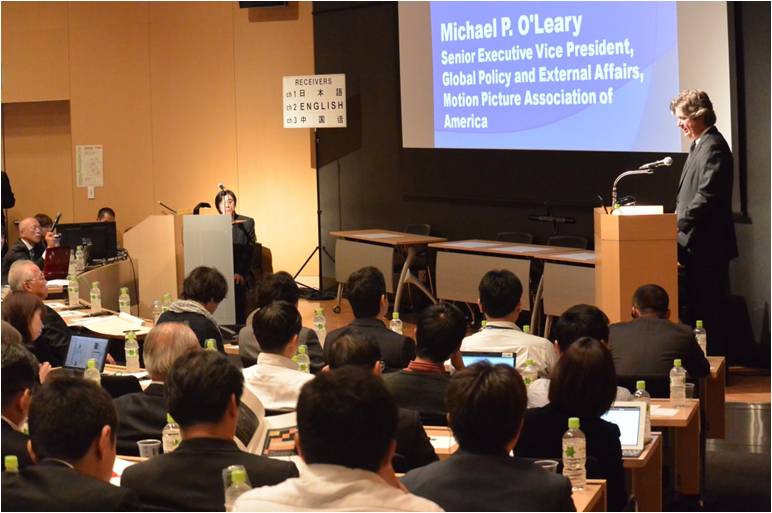Celebrating Cinema’s Broad Reach at the Tokyo International Film Festival
This week, the 26th annual Tokyo International Film Festival (TIFF) is drawing artists and filmmakers from all across the world to Japan to celebrate this remarkable art form that is loved throughout the globe. On Monday, I had the opportunity to speak to the men and women attending this year’s festival about the ongoing innovations and technological developments that are transforming the world of film and television.
As I told the TIFF audience, thanks to new technology and the massive power and reach of the Internet, we now have the ability to watch the movies and television shows we love in more ways, on more devices than ever before. And in an increasingly connected world, where more and more people are gaining access to broadband Internet, the online marketplace is showing itself to be a truly vital one.
Today, there are over 400 unique online services throughout the world that viewers can use to legitimately watch full-length films and TV shows. In Japan alone, there are more than 30 services including Hulu, GyaO! (Yahoo!), Nico Nico Douga (niwango) and Youku Tudou. And this explosion of innovative viewing options is continuing on a daily basis as members of our industry, along with the tech industry, are working to develop still more new and innovative legitimate platforms for delivering the content audiences want to watch.
Basically, thanks to the imagination of creators and engineers alike, no matter who you are, what you want to see, or how and where you want to watch, there is a service for you.
And the business models that support these services are equally varied – you can pay a monthly subscription fee for unlimited access, you can pay only for the movies or shows you want to see, or you can watch on sites supported entirely by advertising – and everything in between.
The choices that these new platforms and services are creating go beyond just the viewing experience – they also give the creators and distributors of content entirely new avenues for getting their work in front of audiences. These opportunities allow creators to experiment with how they make and distribute their work, expanding our understanding and appreciation of the art of the motion picture, and leading to a filmmaking revolution that is creating bolder storytelling from new voices and top talent, both in front of and behind the screen. And many of those fresh new voices and top talent are on display this week in Tokyo.
But just as important as these new opportunities are for the creation of new methods for creating stories on screens both large and small, these new online distribution methods are helping to ensure that talented people creating these films and TV shows that audiences love are compensated for their work.
Millions of people around the world make a living working in this industry – from the set-builders, costume makers, and special effects creators behind films like the ones at TIFF, to those working in television, home video, and online distribution. And legitimate online distribution models not only create jobs themselves, they contribute to the entire process of film and television production, ensuring that everyone involved in a production are paid for their work.
Unfortunately it’s all too easy in today’s online world to make different choices, harming rather than supporting these jobs, the industry, and the economy.
As an industry, we know we must continue to strive to provide more options to consumers so that they can view our content when they want it, where they want it. Many others in the Internet ecosystem are stepping up to the plate too, working towards voluntary solutions that will help foster creativity and innovation.
It’s not a short road, nor an easy one. But in the long term, the growth of legitimate online services will not only enhance existing services and new ones, but it will mean less infringement, more high-quality content for audiences, and solid, steady, well-paying jobs for those who make their careers in the film and television industry around the globe.
For those who love film, this really is a very promising and exciting time for the industry and our audiences around the world. These online distribution services are opening up new opportunities for both traditional and innovative forms of filmmaking that were unthinkable just a few short years ago. And although we clearly have more work to do, both to improve the quality and access to online models in places like Japan and others, the MPAA and the studios that we represent are committed to continuing to create new and innovative ways for audiences to view our content online when they want it, where they want it, and on the devices they want to view it on.


